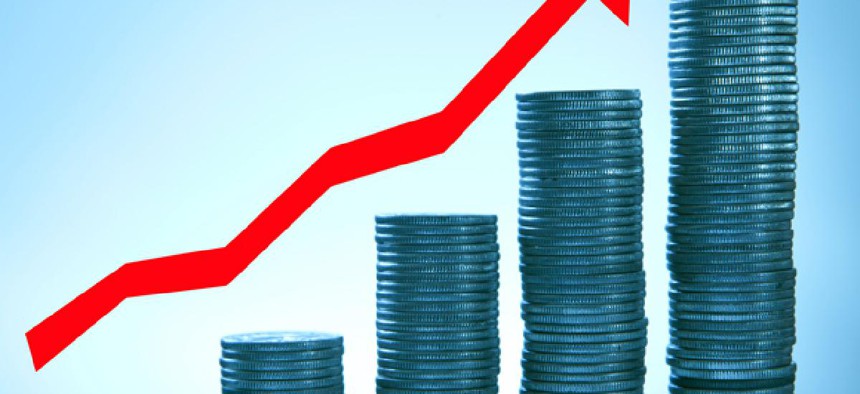
Anita Huszti/Shutterstock.com
Economy could take big hit from lapse of payroll-tax cut
With the tax rising from 4.2 percent to 6.2 percent, consumer spending could suffer.
The recent payroll-tax hike could play a major role in slowing down consumer spending this quarter.
When lawmakers negotiated a deal last month to extend the Bush-era tax cuts for the middle class, they let the 2 percentage-point cut to the payroll tax expire. Some economists have argued that the cut, enacted two years ago, was highly effective in stimulating the economy. In fact, workers spent more of the money they saved from the cut than they had intended, according to a recent New York Federal Reserve Bank study.
But that's over. With the tax rising from 4.2 percent to 6.2 percent, consumer spending in the first quarter of 2013 could take a big hit, according to the economists at RBC Capital Markets.
Thanks mostly to the payroll-tax hike (as well as a tax-refund delay and high gas prices), growth in consumer spending this quarter could be slowed to a fourth of its potential. The eight-quarter average suggests the country was headed for growth of about 2 percent, the economists wrote. But as consumers grapple with smaller paychecks and other special factors, the pace of expansion could come in at a minuscule 0.5 percent.
RBC's chart shows clearly what that drag on consumer spending could look like. (Note: the orange bar on the left represents the trend in spending growth. The one on the right represents what the RBC folks expect.)
(Image via Anita Huszti/Shutterstock.com)
NEXT STORY: Pay No Attention To That Anemic Economy






